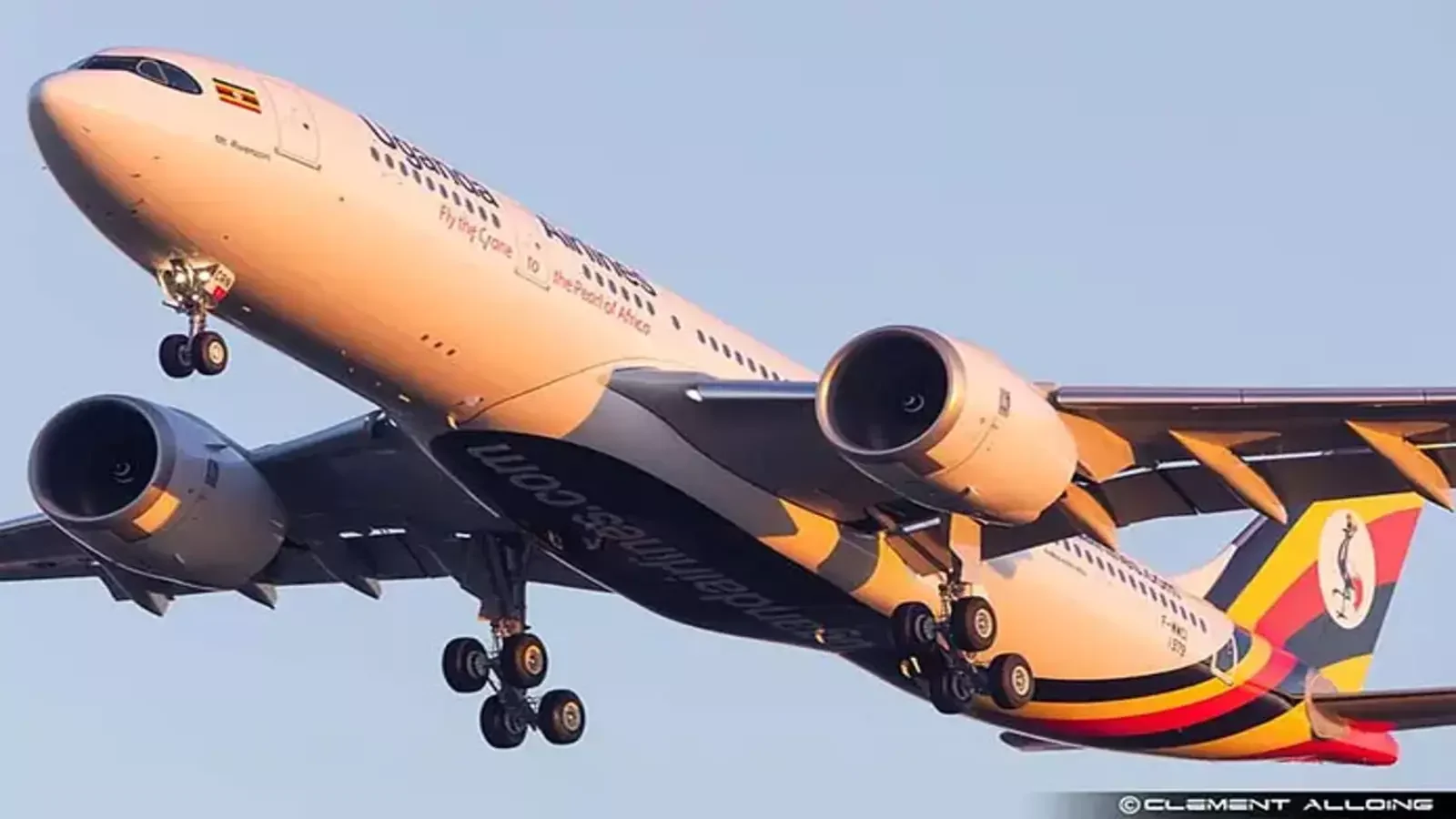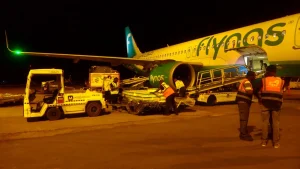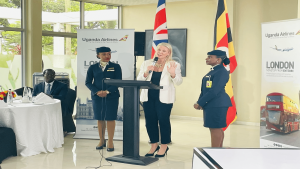Share
The Uganda National Airlines Company’s Chief Executive Officer, Jenifer Bamuturaki, has declared that the national flag carrier expects to be financially stable in three years.
According to Auditor General reports, Uganda Airlines has faced financial difficulties over the last three fiscal years, posting major losses of 104 billion Shillings in FY 2020/21, 164 billion Shillings in FY 2021/22, and 234 billion Shillings in FY 2022/23, totaling 502 billion Shillings.
The conclusions of the Auditor General led the Public Accounts Committee on Commission, Statutory Authorities, and State Enterprises (COSASE) to conduct a more thorough assessment of the airline’s activities in order to lead the formation of the entity’s strategic plan.
Bamuturaki stated in an interview with URN that the poor representation in the audit reports was justified, citing unavoidable factors and administrative expenditures during the examined time. She noted the company’s attempts to address these losses, such as minimizing fuel and oil expenses, maintenance, rentals, and staff expenditures through techniques such as people training, process automation, airplane seat design improvements, and route extension.
Bamuturaki revealed that her administration has set a realistic three-year deadline to reach profitability. The airline now earns up to 85 percent of its income to meet direct operating expenditures such as maintenance costs, staff salaries, landing fees, and navigation charges.
Regarding the current performance of Uganda Airlines, Abderahmane Berthé, General Secretary of the African Airlines Association (AFRAA), stated that the future of Air Uganda appears promising, especially given its growth in acquiring new flight routes since its revival in 2019 after an 18-year hiatus.
Bamuturaki revealed that her administration has set a realistic three-year deadline to reach profitability. At the moment, the airline gUganda Airlines, which operates six aircraft, has been serving roughly 12 destinations since 2019, including Nairobi, Dar-es-Salam, Bujumbura, Mogadishu, Zanzibar, Mombasa, Kinshasa, Juba, Lagos, and South Africa. Intercontinental flights are also available from Dubai, Mumbai, London, and Guangzhou.
During the early phases of its resurrection, Uganda Airlines encountered global problems created by the COVID-19 pandemic, which resulted in international travel restrictions as states fought to prevent the virus’s spread.enerates up to 85% of its income to pay direct operating expenditures like as maintenance, crew costs, landing fees, and navigation charges.
Regarding Uganda Airlines’ current performance, Abderahmane Berthé, General Secretary of the African Airlines Association (AFRAA), stated that the future of Air Uganda appears promising, especially given its growth in acquiring new flight routes since its revival in 2019 after an 18-year hiatus.











